“Dear Black Men…” : CSUN’s Biannual Men of Color Enquiry
“It’s important that [students] develop a foundational knowledge of black men, a foundational knowledge of the black community as it relates to black men, how black men are situated within the community and what the issues or problems [for black men] could be,” said Cedric Hackett, a professor in CSUN’s Department of Africana Studies.
Each semester, Hackett assigns students in his Black Man in Contemporary Times class to research and develop an annotated bibliography and a lit review or a hypothesis on a topic related to contemporary black men. The students use their research to form an argument or theory on contemporary black men, related to a specific theme, and present a poster on their findings. Exploring this year’s theme, “Dear Black Men…”, the CSUN students presented their findings Nov. 22 at the 14th Biannual Men of Color Enquiry and Student Research Poster Session in the University Student Union Grand Salon.
Celeste Luis, Dior Parks and Okwaas Muhammad presented their poster, “Beyond PTSD: Black Male Trauma and Anxiety,” which detailed information on police brutality, racially charged violence and historical trauma and their effects on black men’s mental health.
“Throughout our research, it was rather difficult finding articles on this topic. It’s not really discussed [in the black community], so it’s a topic we want to bring to light,” Luis said.
Hackett opened the program, which was open to the CSUN community, by having attendees stand and introduce themselves to someone near them. He then had everyone turn to someone else and say, “I am somebody, and so are you. I am who I am, and that’s enough. I am, because we are” — coming from the South African word, “Ubuntu,” which translates to “I am because we are” or “humility towards others.”
After opening remarks, attendees had the opportunity to take in each poster, and participants enjoyed lunch of sandwiches while quintessential drummers Derf Reklaw and Jay-Jei Kabasa performed a drumming session. CSUN senior Brendon Scott, alumnus William Alisca Jr. ’16 (Creative Writing) and Anthony Lawson performed a series of “black man-ologues,” where they discussed abuse, mental health, personal tragedy and triumph as it related to race. Keynote speaker Stephan A. Small, a professor from University of California, Berkeley’s Department of African American Studies, spoke about his work on African in Europe.
Other student posters included topics such as:
- “Last Name, No Presence: the Effect that Absentee Fathers Have on the Lives of Black Men,” by Jimmiyah Jones, Malcolm Sabal and Cornett Wright, who studied why a black father might be absent from their children’s lives.
- “The Auction Block: Comparing Sports Trade to Plantation Slavery,” by Anis Abdulaziz, Chanell Green, Joseph Jones and Emily Ramirez, who noted that the trading of teams with primarily black athletes is similar to the historical treatment of “super-slaves” — slaves whose bodies where built up to make them more desirable when sold.
- “It’s Okay to Not Be Okay: Black Men and Mental Health,” by Alona Carter, Daniel Renteria and Renata Linares, who found great need for more education and awareness around mental health as it relates to the black experience, in order to normalize black men seeking mental health help when they need it.
“Our class is related to the black male, but … the black community overall has to come together and realize, we have to learn how to treat these issues instead of just going [along], knowing that we have a problem, but not wanting to address it,” Parks said.

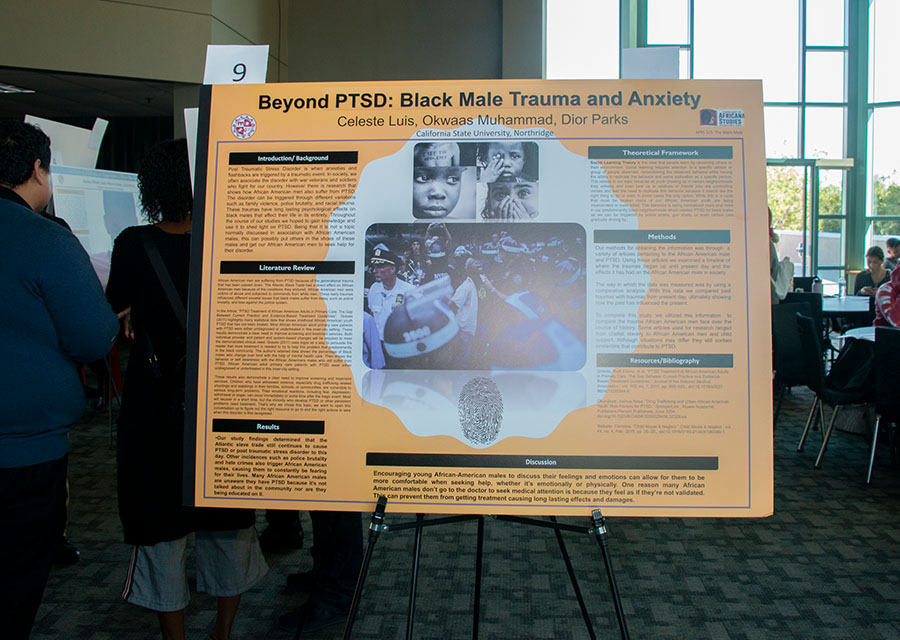
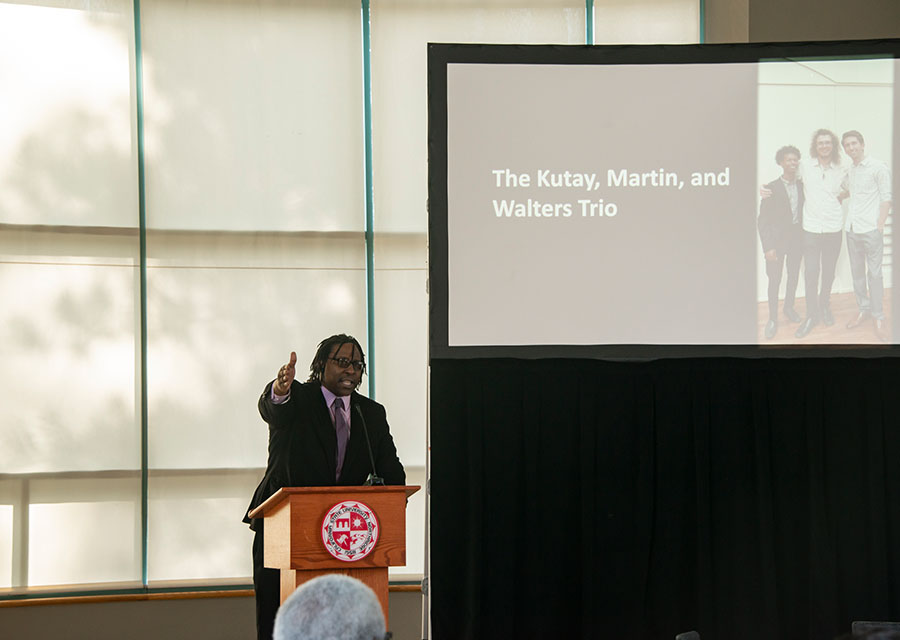
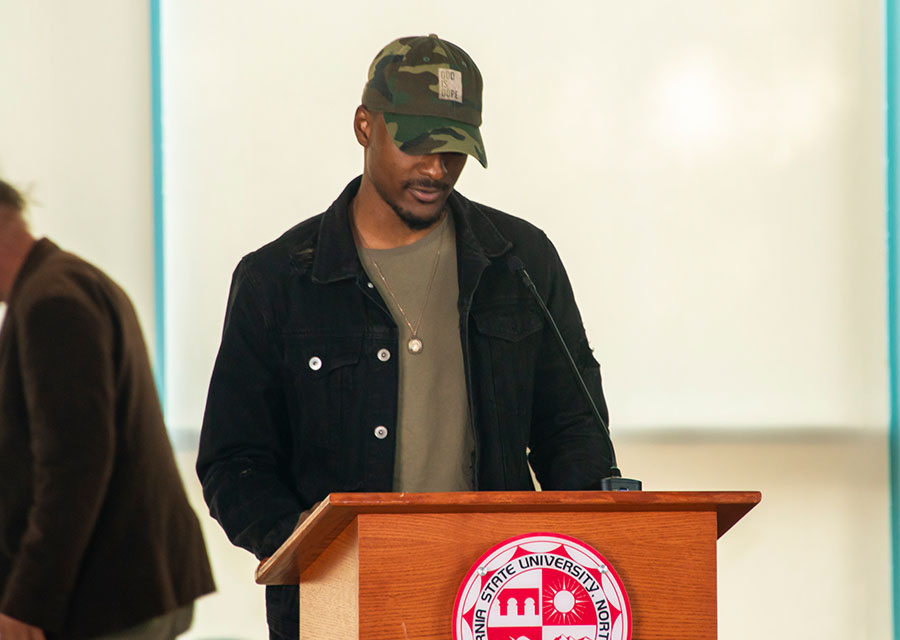
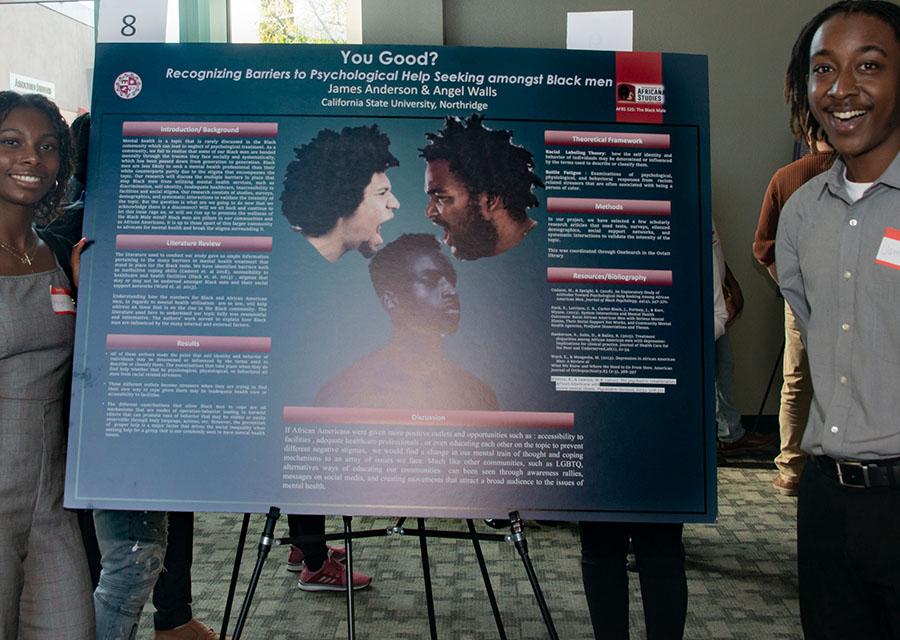
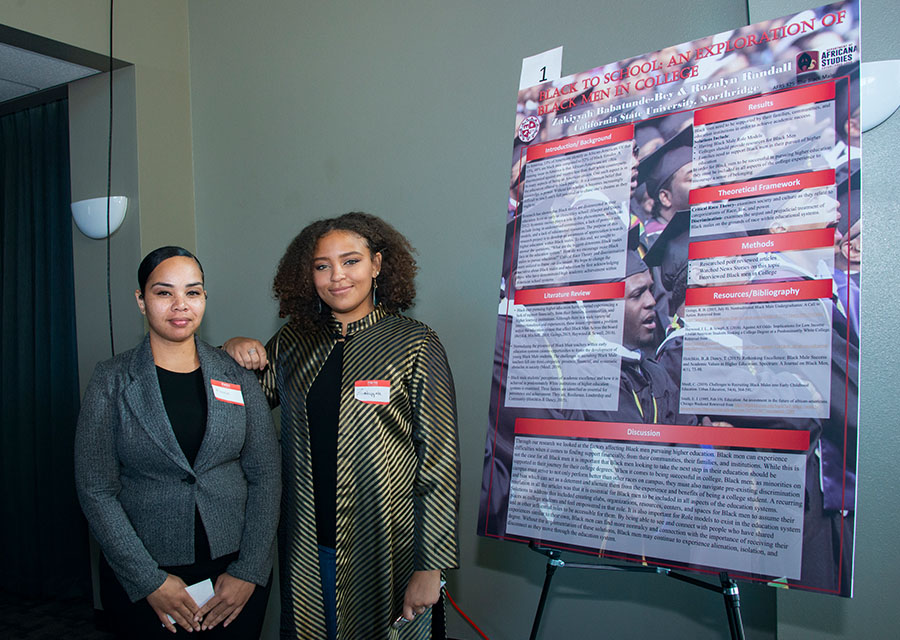
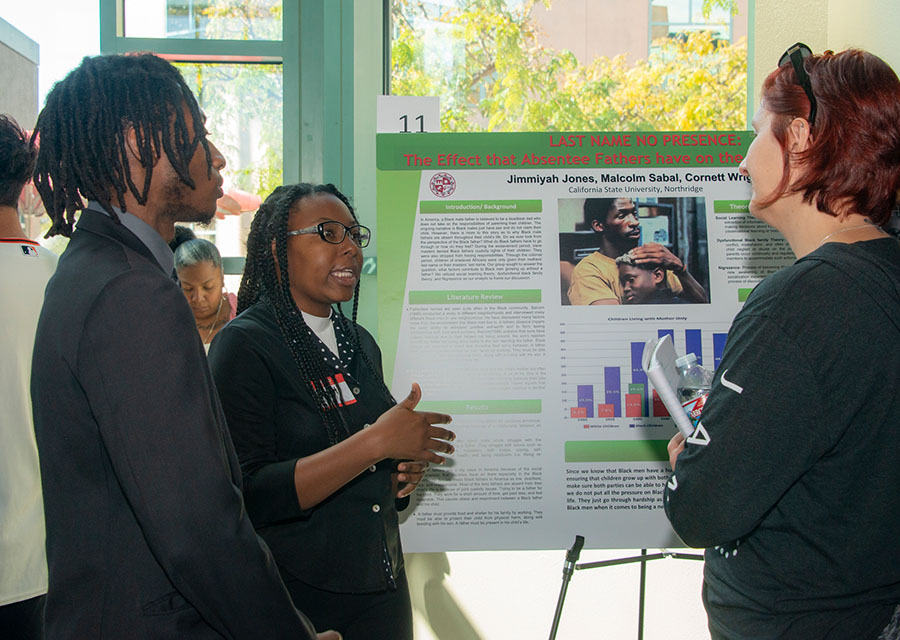
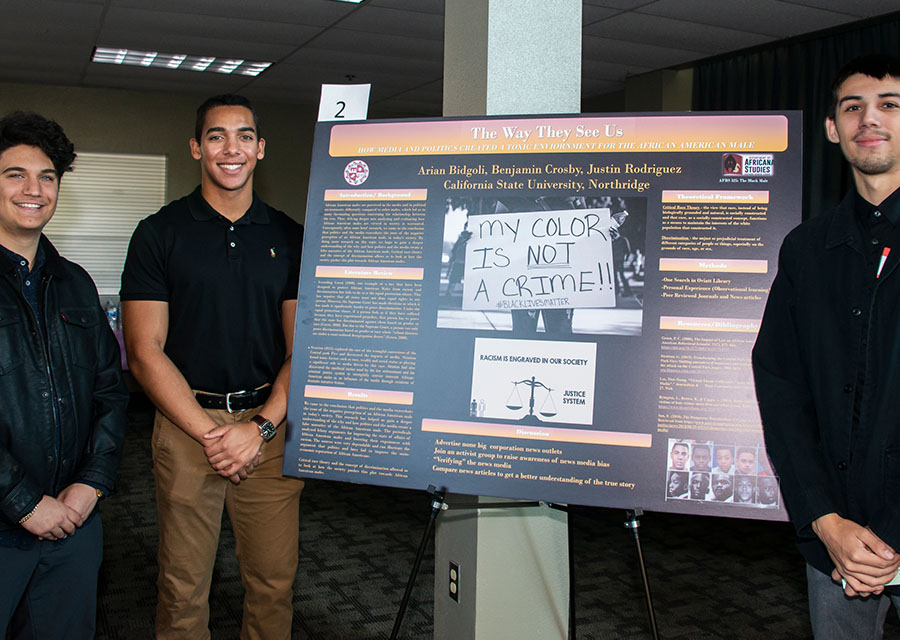
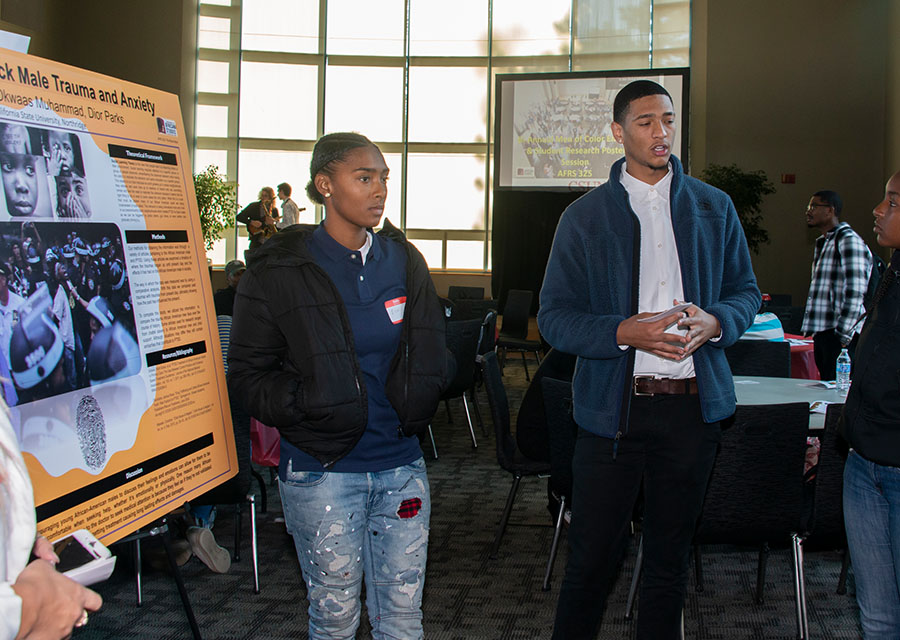
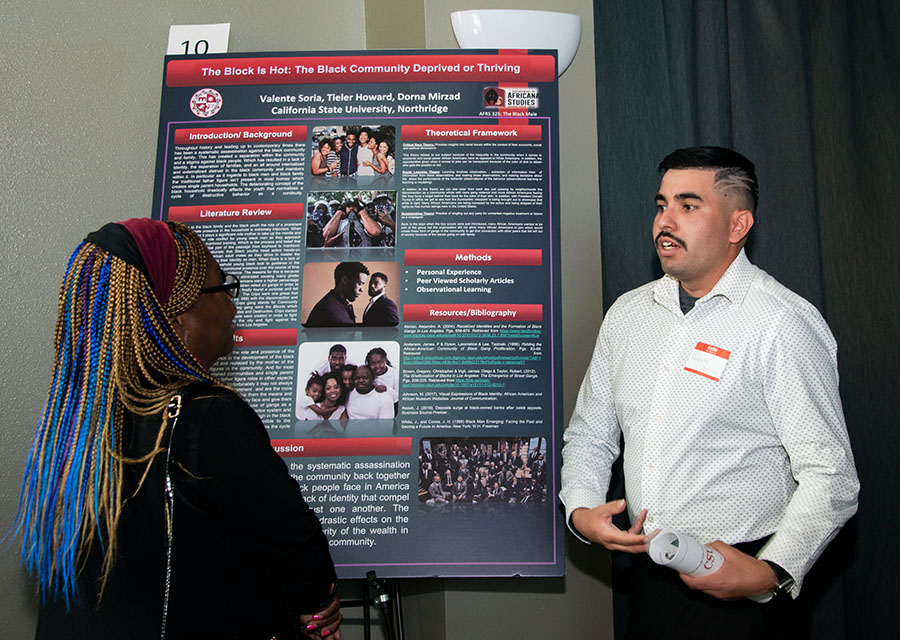
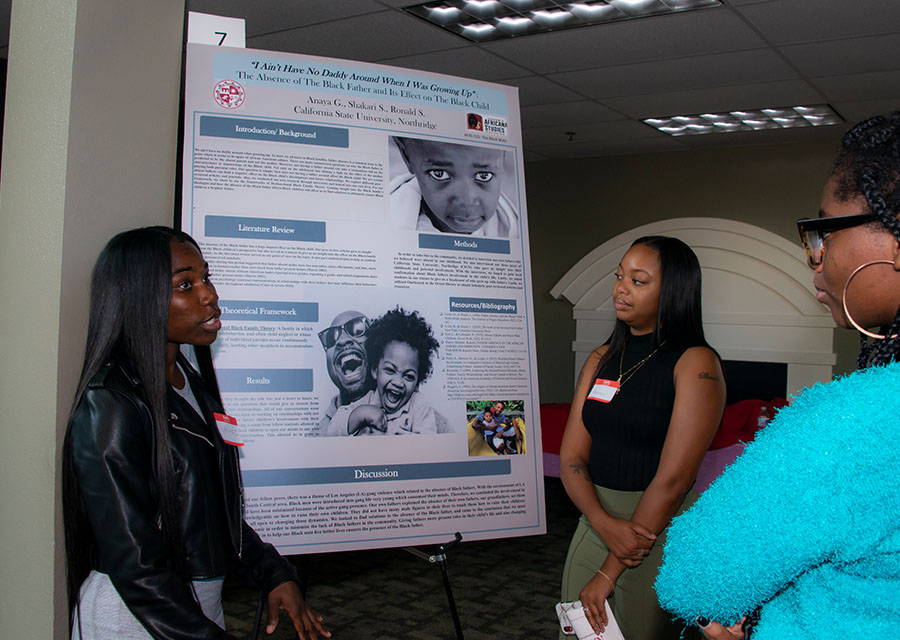
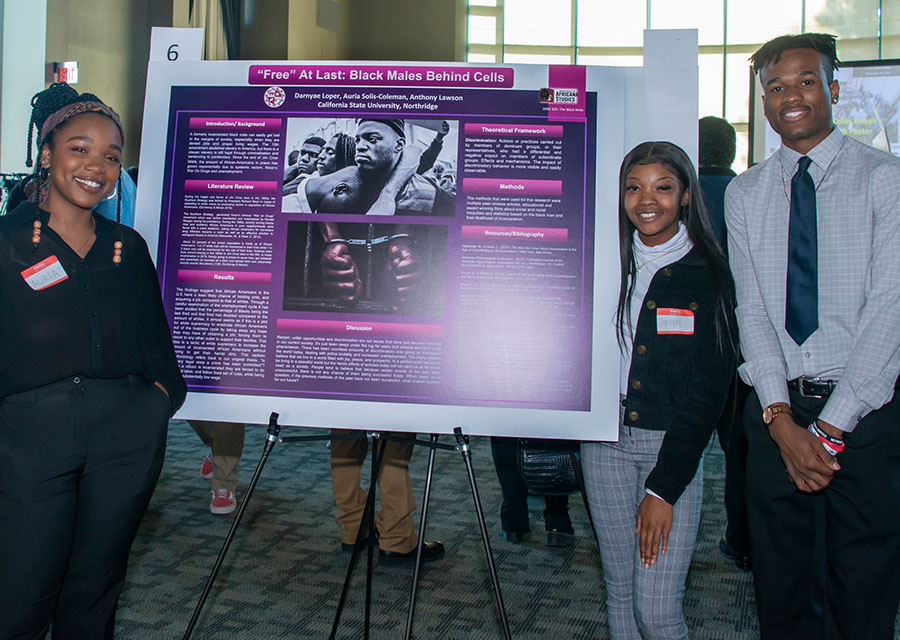
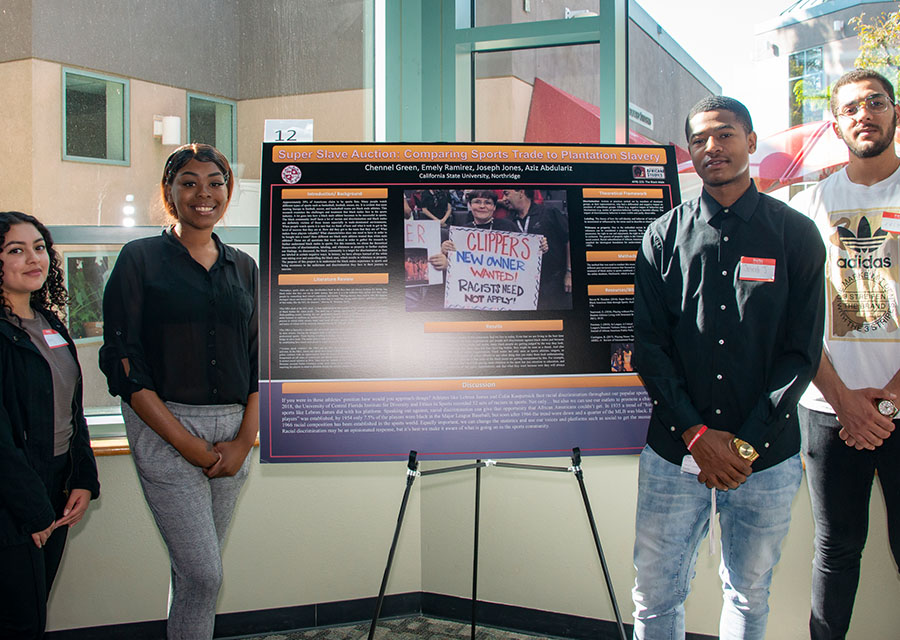
 experience
experience